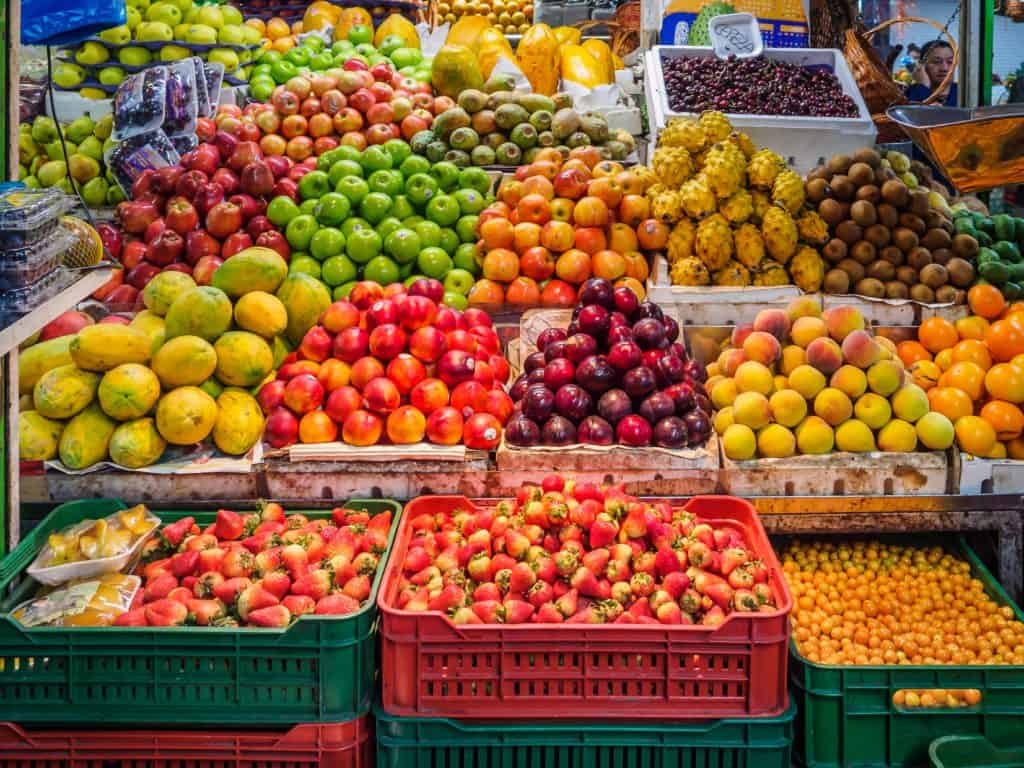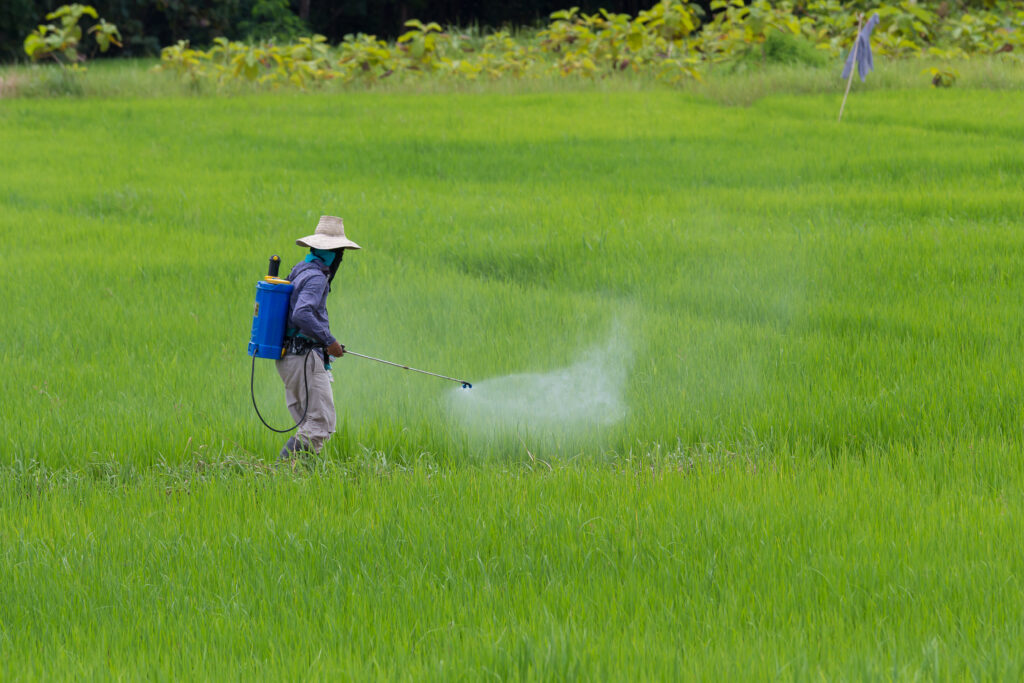Glyphosate Detox – How to Reduce Glyphosate Levels in Your Body
So you’ve heard about Glyphosate and now you are wondering if you need to do a Glyphosate detox?
The same thing happened to me – before we get into how to detox glyphosate lets focus on what it is.
Glyphosate, a widely used herbicide found in products like Roundup, has become a ubiquitous presence in modern agriculture. Its widespread use has led to concerns about its potential impact on human health. Glyphosate has been linked to various health issues, including cancer, hormonal imbalances, and gut dysbiosis. As a result, it is essential to explore effective strategies for detoxifying glyphosate from the body.
The purpose of this article is to provide a comprehensive guide on how to remove glyphosate from the body, discussing the most effective methods and natural remedies that can help alleviate its toxic effects. By understanding the risks associated with glyphosate exposure and learning how to detoxify it, individuals can take proactive steps to protect their health and well-being.
In this article, we will delve into the world of glyphosate detoxification, exploring the science behind its toxic effects and the natural remedies that can help mitigate them. From diet and nutrition to supplements and lifestyle changes, we will cover a range of effective strategies for removing glyphosate from the body and promoting overall health and wellness.
Key Takeaways
Glyphosate exposure is a widespread concern, and it’s essential to take proactive steps to minimize its impact on our health. Here are the key takeaways from our discussion on detoxifying glyphosate:
- Glyphosate exposure is common: Glyphosate is present in our food, water, and environment, making it difficult to avoid. However, by being aware of its presence, we can take steps to reduce our exposure.
- Dietary changes are crucial: Eating an organic, whole-food diet can help reduce glyphosate intake. Focus on consuming foods rich in antioxidants, fiber, and omega-3 fatty acids.
- Exercise is essential: Regular exercise can help stimulate the body’s natural detoxification processes. Aim for at least 30 minutes of moderate-intensity exercise per day.
- Supplements can support detox: Certain supplements like activated charcoal, chlorella, and probiotics can help bind to glyphosate and support the body’s natural detoxification processes.
- Minimize exposure: Reduce your use of Roundup and other glyphosate-based products, and avoid areas where they are commonly used.
By implementing these strategies, you can reduce your exposure to glyphosate and promote overall health and wellness. Remember, a healthy diet, regular exercise, and targeted supplements can go a long way in supporting your body’s natural detoxification processes.

Exploring Glyphosate and Its Health Impact
What is Glyphosate?
Glyphosate is a widely used herbicide that has been in use since the 1970s. It was first introduced by Monsanto as Roundup, and has since become one of the most commonly used herbicides in agriculture. Glyphosate is used to kill weeds and other unwanted plants that compete with crops for water, nutrients, and light.
Common Sources of Exposure
Glyphosate exposure can occur through various sources, including:
- Non-organic foods: Glyphosate is commonly used in conventional farming practices, and residues can be found in non-organic foods such as soybeans, corn, and wheat.
- Water contamination: Glyphosate can contaminate water sources through runoff from farms and urban areas.
- Environmental exposure: People can be exposed to glyphosate through skin contact or inhalation when using it in their gardens or lawns.
Potential Health Risks of Glyphosate Exposure
Research has suggested that glyphosate exposure may be linked to various health risks, including:
- Disruption of gut microbiome: Glyphosate has been shown to disrupt the balance of gut bacteria, leading to changes in the immune system and increasing the risk of chronic diseases.
- Link to chronic diseases: Glyphosate has been linked to an increased risk of chronic diseases such as cancer, endocrine disruption, and liver or kidney issues.
- Current scientific debate: There is ongoing scientific debate over the long-term safety of glyphosate, with some studies suggesting that it may be carcinogenic and others finding no evidence of harm.
Strategies to Minimize Glyphosate Exposure
Eating Organic
One of the most effective ways to minimize glyphosate exposure is to switch to organic foods. Organic farming practices prohibit the use of synthetic pesticides like glyphosate, reducing the risk of residues in food.
- Benefits of organic foods: Eating organic foods can significantly reduce glyphosate intake, as well as exposure to other pesticides and chemicals.
- Addressing cross-contamination concerns: While organic farming practices are designed to minimize pesticide use, cross-contamination can still occur. However, studies have shown that organic foods generally have lower levels of pesticide residues than conventionally grown foods.

Washing and Preparing Food
Proper washing and preparation of fruits and vegetables can also help reduce glyphosate residues.
- Techniques for reducing pesticide residues: Techniques like washing with soap and water, using food-grade rinses, or making homemade solutions like baking soda and water can help remove pesticide residues from fruits and vegetables.
- Effective washing methods: Washing fruits and vegetables under running water, using a soft-bristled brush to scrub firm-skinned produce, and soaking leafy greens in a solution of water and vinegar can all help reduce pesticide residues.
Avoiding Processed Foods
Processed foods are another significant source of glyphosate exposure. Many processed grains, cereals, and snacks contain glyphosate residues, which can accumulate in the body over time.
- Glyphosate residues in processed foods: Glyphosate residues have been found in a variety of processed foods, including bread, cereals, and snacks.
- Choosing whole, minimally processed alternatives: Opting for whole, minimally processed foods like fruits, vegetables, whole grains, and lean proteins can help reduce glyphosate exposure and promote overall health.
By implementing these strategies, individuals can minimize their exposure to glyphosate and reduce their risk of associated health problems.
It is essential to understand the potential health risks associated with glyphosate exposure and to take steps to minimize exposure through diet, lifestyle, and environmental changes.
Detoxifying Glyphosate from Your Body
Dietary Interventions
A well-planned diet can play a crucial role in detoxifying glyphosate from the body. Incorporating flavonoid-rich foods, high-fiber foods, and probiotics can help combat oxidative stress, support detoxification pathways, and restore gut health.
- Flavonoid-Rich Foods: Berries, citrus fruits, kale, onions, and green tea are rich in flavonoids, which can help combat oxidative stress and support detoxification pathways.
- High-Fiber Foods: Pseudocereals like quinoa, amaranth, and chia are high in fiber, which can help bind toxins and aid in their excretion. Fiber also supports gut health, which is essential for a healthy immune system.
- Probiotics and Fermented Foods: Probiotics and fermented foods like yogurt, kimchi, and sauerkraut can help restore the balance of the gut microbiome, which can be disrupted by glyphosate exposure.
Sweating and Physical Activity
Sweating and physical activity can also play a role in detoxifying glyphosate from the body.
- Exercise: Engaging in aerobic activities like running, cycling, or swimming can stimulate lymphatic flow and help eliminate toxins from the body.
- Saunas and Heat Therapy: Sweating can help excrete toxins, including glyphosate residues. However, it’s essential to take precautions to avoid dehydration.

Supplements For Detoxing Glyphosate
Certain supplements can also support the detoxification process.
- Activated Charcoal: Activated charcoal can bind to toxins, including glyphosate, and aid in their excretion. However, it’s essential to follow the recommended dosage and consult with a healthcare professional to avoid any adverse effects.
- Glycine Supplements: Glycine supplements can support detoxification pathways in the liver. Foods rich in glycine, such as bone broth, can also be beneficial.
- Citrus Pectin and Algae-Based Supplements: Citrus pectin and algae-based supplements can act as natural binders for toxin elimination.
- Ginkgo Biloba: A study found that Ginkgo biloba leaf extract can protect against the toxic effects of glyphosate, the active ingredient in Roundup. Glyphosate caused liver and kidney damage, oxidative stress, and genetic damage in mice, but Ginkgo biloba treatment provided dose-dependent protection against these harmful effects, with higher doses showing stronger benefits.
- Humic and Fulvic Acid: humic acid has been shown to neutralize glyphosate’s negative effects, particularly in gastrointestinal health. A recommended treatment protocol involves an initial 7-day dose followed by a maintenance dose to prevent re-accumulation from dietary exposure.
It’s essential to tailor your approach to your individual needs and health status. If you need more detox information check out our Detox guide.
Supporting Long-Term Detoxification
Hydration and Kidney Health
Proper hydration is essential for kidney health and detoxification. Drinking clean, filtered water can help flush out toxins and support kidney function.
- Adding lemon or apple cider vinegar to water: Adding a squeeze of lemon or a splash of apple cider vinegar to water can enhance detoxification benefits. These ingredients can help stimulate digestion and promote the elimination of toxins.
Gut Health Maintenance
Maintaining a healthy gut microbiome is crucial for long-term detoxification. Probiotics and prebiotics can help restore microbial diversity and support the gut’s natural detoxification processes.
- Long-term use of probiotics: Taking probiotics regularly can help maintain a healthy balance of gut bacteria. This can support the immune system and promote the elimination of toxins.
- Eating prebiotic foods: Prebiotic foods like garlic, asparagus, and onions can help nourish gut bacteria and support the growth of beneficial microorganisms.
Liver Support
The liver plays a critical role in detoxification, and supporting its function is essential for long-term health.
- Foods and herbs that enhance liver detoxification: Certain foods and herbs like milk thistle, turmeric, and dandelion root can enhance liver detoxification and promote the elimination of toxins.
- Role of antioxidants in protecting liver cells: Antioxidants can help protect liver cells from glyphosate-related stress and promote the elimination of toxins. Foods rich in antioxidants like berries, leafy greens, and other fruits and vegetables can support liver health.
By incorporating these strategies into your daily routine, you can support long-term detoxification and promote overall health and wellness. Remember to consult with a healthcare professional before starting any new supplements or detoxification protocols.
FAQs About Glyphosate Detox
Can you fully detoxify glyphosate from the body?
While it may not be possible to completely eliminate glyphosate from the body, consistent effort and a well-planned detoxification strategy can significantly reduce its presence.
How long does it take to detox glyphosate?
The timeline for detoxifying glyphosate varies depending on individual factors, such as the level of exposure and the detox methods used. It’s essential to be patient and persistent in your efforts.
Are there risks to detoxing too quickly?
Aggressive detoxification can lead to potential side effects like fatigue, headaches, or nutrient loss. It’s crucial to approach detoxification in a gentle and gradual manner.
What are the signs of glyphosate exposure?
Glyphosate exposure can manifest in various non-specific symptoms, including digestive issues, fatigue, hormonal imbalances, and more. If you suspect glyphosate exposure, consult with a healthcare professional for personalized guidance.

Conclusion
Reducing glyphosate exposure and detoxifying the body is crucial for maintaining optimal health. By understanding the risks associated with glyphosate and taking proactive steps to minimize its impact, individuals can reduce their risk of chronic diseases and promote overall well-being.
A combination of dietary changes, physical activity, and targeted supplements can be an effective approach to detoxifying the body. By incorporating flavonoid-rich foods, high-fiber foods, and probiotics into your diet, you can support your body’s natural detoxification processes. Regular exercise and sweating can also help eliminate toxins, while supplements like activated charcoal, glycine, and citrus pectin can provide additional support.
Before beginning a detox regimen, it’s essential to consult with a healthcare professional to determine the best approach for your individual needs. They can help you create a personalized plan that takes into account your health status, lifestyle, and environmental factors.
Remember, reducing glyphosate exposure and detoxifying the body is a long-term process that requires patience, persistence, and dedication. By taking the
Discover more from Maxwell Person
Subscribe to get the latest posts sent to your email.